Just English?
Does speaking one language suffice? Jorge Valdés Kroff and Emily Hind created a Gen Ed course, Just English? to pose the question for incoming UF students. They drew on expertise from four consulting colleagues, drawn respectively from Anthropology, English, the Libraries, and Education.
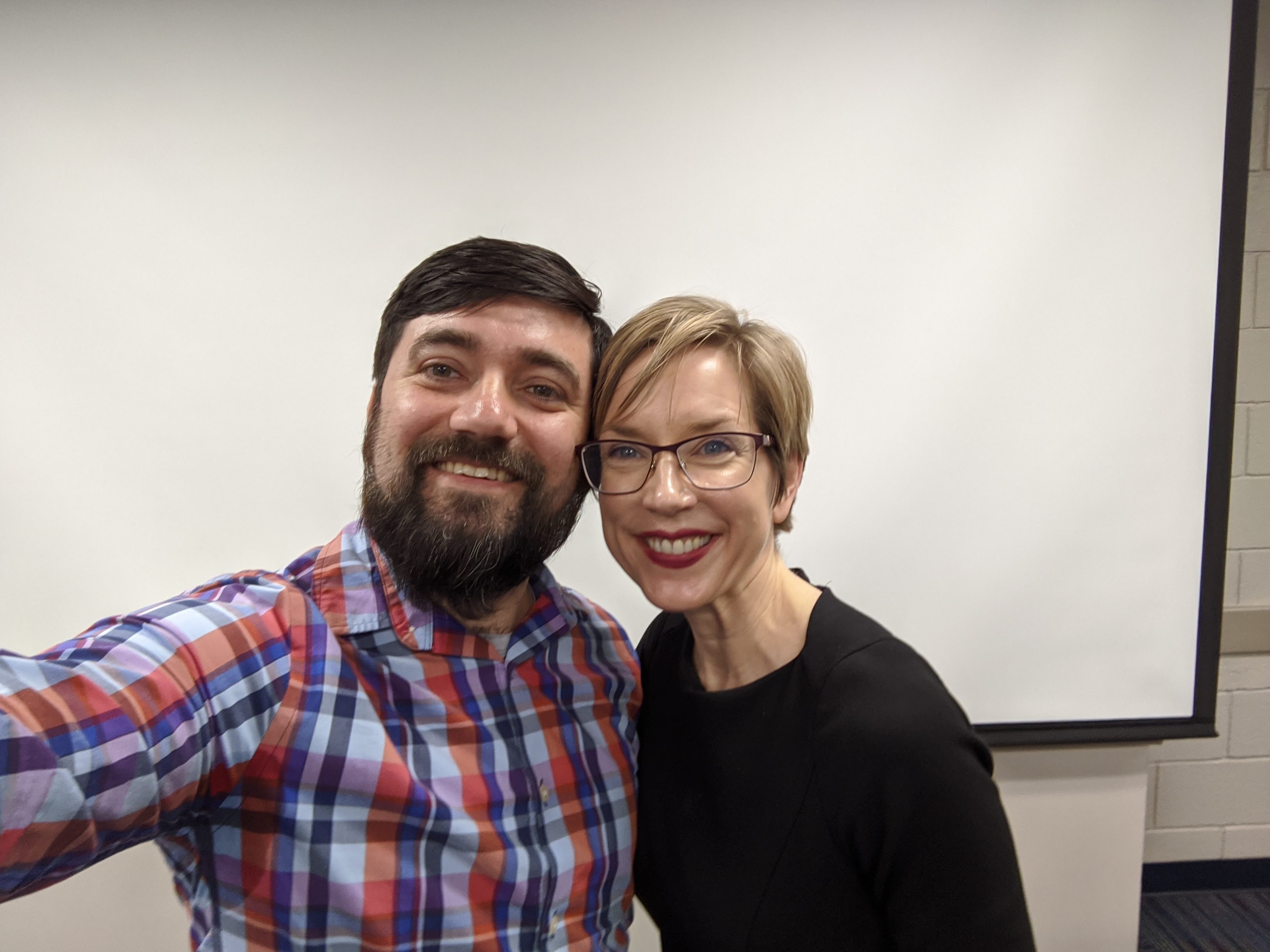
Our linguist (Valdés Kroff) and literary critic (Hind) co-teach the class and require the 30 participating students to read academic articles, access library archives, engage with guest speakers from UF and other universities, and interview peers and relatives in search of the answer to the titular question.
Professor Valdés Kroff’s favorite aspect is the exhilarating discussion. Professor Hind recommends for our newsletter public the assigned book, Tell Me How It Ends: An Essay in 40 Questions, by Valeria Luiselli, who won the 2019 MacArthur Genius grant. She was thrilled to host eminent Mexican scholar Cristina Rivera Garza on February 13, 1:55 pm, in Turlington L011.
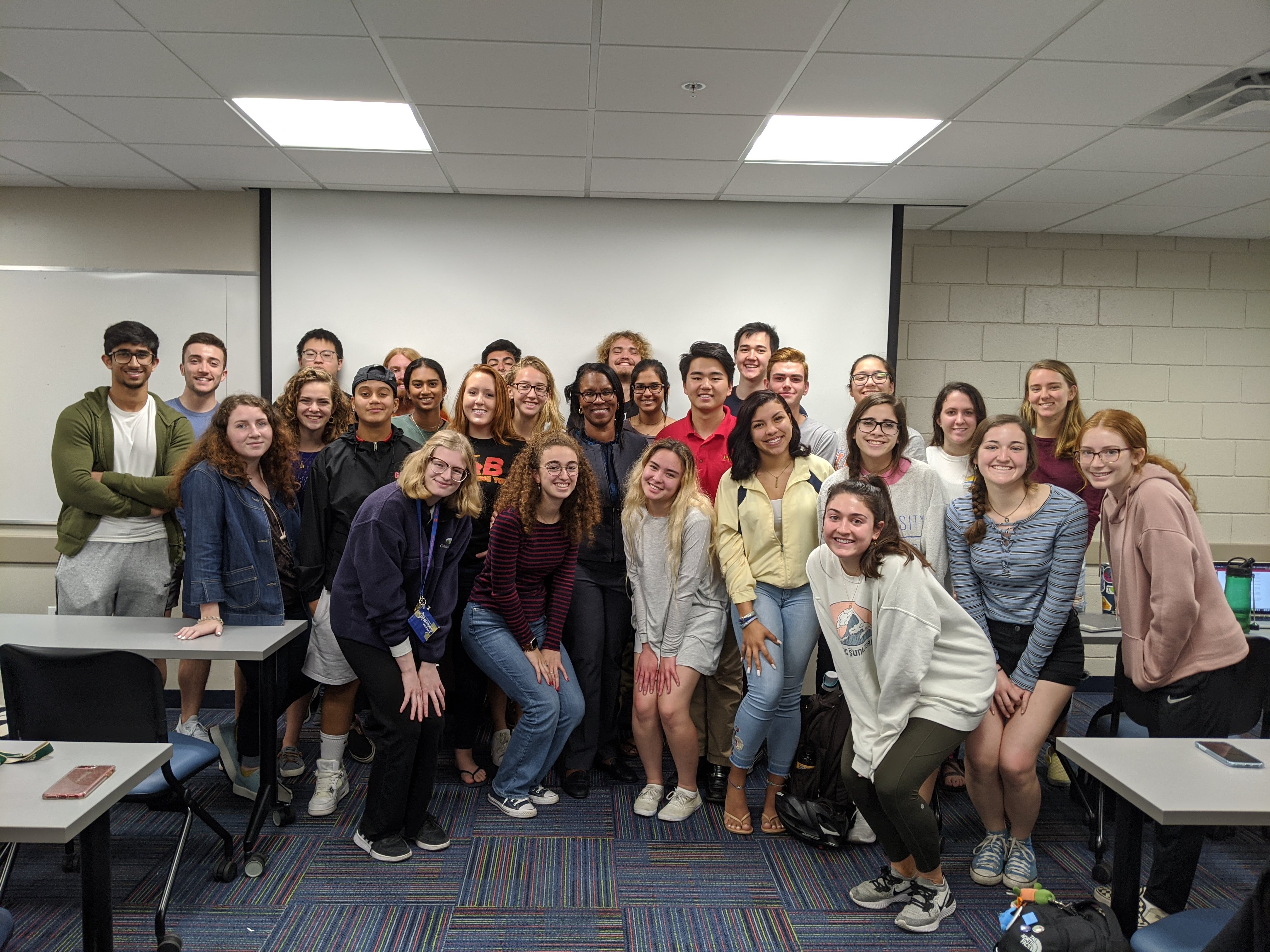
Chemistry in the Cocina Latina
Co-taught by Drs. Gillian Lord (Spanish and Portuguese Studies) and Dr. Valeria Kleiman (Chemistry), this cross-disciplinary Quest 2 course presents the role of science in our everyday lives and how chemistry is essential to our understanding of the world, while developing a critical sense for the use (and misuse) of scientific language and evidence in everyday discourse.
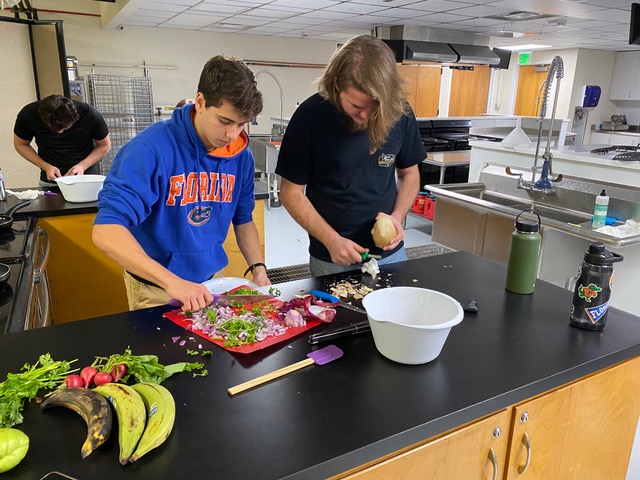
In the kitchen, Christian chops onion and cilantro while Gunner peels jícama for a chayote and jicama salad. These students are proud of their three different preparations of plantains: chifles, patacones, and maduros.
In the state of Florida — and increasingly throughout all of the United States — Hispanic and LatinX cultures are an integral part of our cultural makeup, and nowhere is this more evident than in the culinary products and practices that have become a part of the Floridian landscape. Combining the learning of chemistry with Hispanic/LatinX food becomes the natural setting where to integrate science with the appreciation of our current multicultural society.
Our class, taught in English, meets in three different venues — one week we meet in a regular classroom, the next week we are in a chemistry lab, and another in the campus test kitchen. Each three-week module thus allows us to develop classroom lectures and activities around chemistry concepts, Hispanic history and culture, essential Spanish vocabulary, to then explore the chemical processes involved in the foods and compounds we discussed in lecture, and finally to put it all together by collaboratively preparing recipes containing those ingredients.
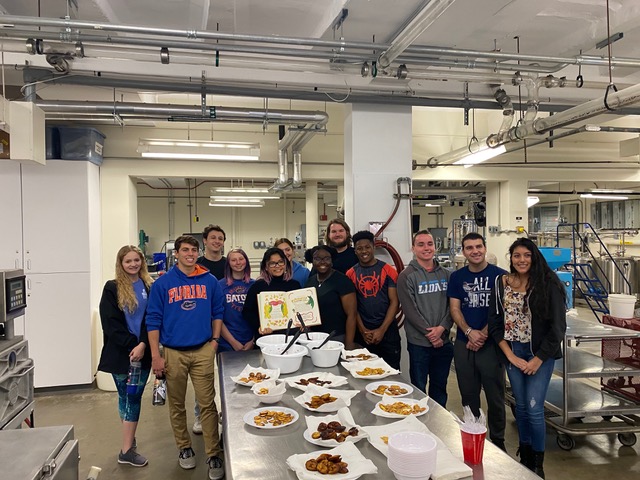
For example, one week we talk about different kinds of peppers in Latin America and explore cultural issues such as the use of hot foods in hotter climates; we also introduce students to the chemical capsaicin, which is responsible for the sensation of heat in ‘hot’ peppers. In the chemistry lab the next week, students carry out a laboratory process to extract capsaicin from different peppers and use UV spectroscopy to determine which pepper is hottest. Finally, in the kitchen, we make chiles rellenos and a few different kinds of salsas, using a variety of different peppers.
By combining these approaches, we allow students to recognize not only the chemistry in their everyday lives, but also the increasing presence of Hispanic migrant voices in the world around them. As such, this course moves away from a simple introduction to chemistry, or survey of Hispanic cultures, to create an integrated exploration of the ways in which scientific and humanistic viewpoints and analyses are truly interdependent.
América: Comida y Conflicto
Our professors Kathryn Dwyer Navajas and Antonio Sajid López are teaching América: Comida y Conflicto, the first Quest Course taught in Spanish, which is also the first course offered in Spanish ever for first-year undergraduates.
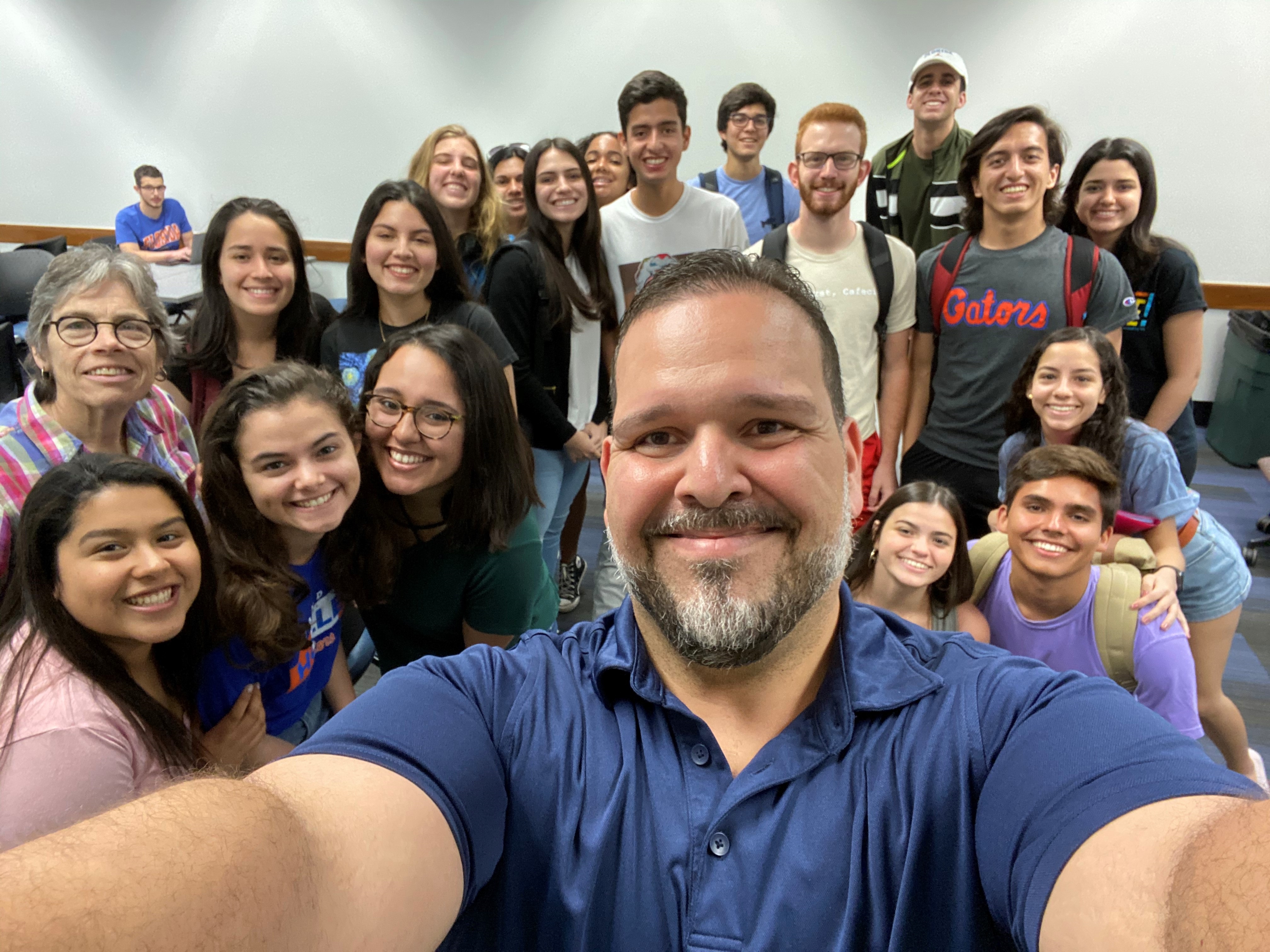
This course uses both written and visual forms of literature, film, art, music, and historical texts. We examine conflicts regarding the use of natural resources, specifically food production, in México, Central America and the Caribbean, at two key moments: the colonial period and the twentieth century, from Columbus´ initial assessment of the profitability of natural and human resources that he encountered, to contemporary negotiations of trade deals involving agricultural products. Conflict and war have shaped the land, the people, and the cultures in the region.
This course focuses on four products with a bloody history: sugar, bananas, coffee, and corn, to understand the local struggles, foreign interventions, and their aftermaths, including waves of migration. This course has an enrollment of 28 students.
UF Quest
UF Quest is a shared, sequential General Education curriculum that serves to nurture the intellectual curiosity of UF students and invite them to grapple with the difficult questions and challenges that they will face as thoughtful adults of a complex and interconnected world.
Faculty across campus were invited to submit course proposals for Quest 1 (deal with issues in the humanities) and Quest 2 (sciences). SPS is proud to be offering three different courses as part of this program (and we have a couple more in the works as well).
These classes are an excellent opportunity for our faculty to show UF students the fascinating areas we work in and study, and to try to attract new students to our degree programs.